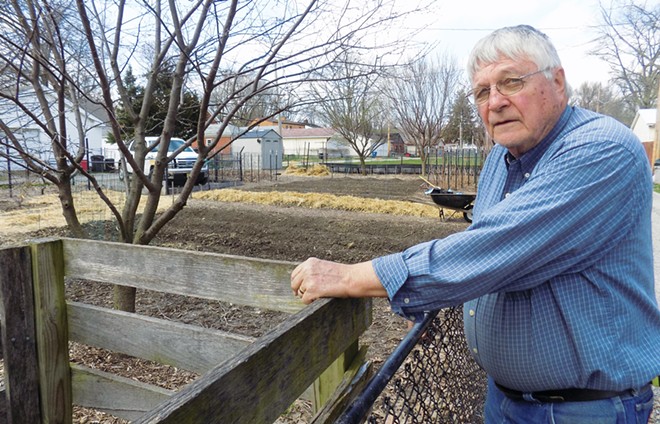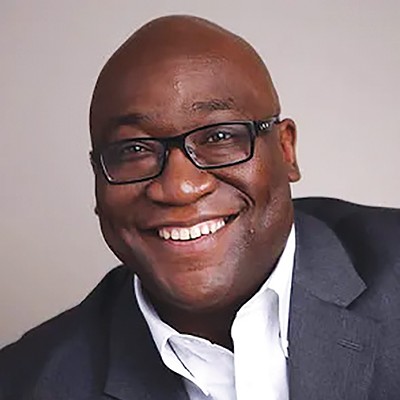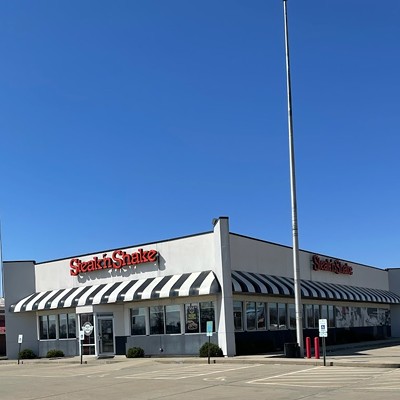There's lots to criticize about our 28th president.
A racist's racist, Woodrow Wilson fired black federal employees while installing separate bathrooms, work stations and lunch areas for remaining ones. He also signed the Treaty of Versailles, which helped sow World War II and was never ratified by the Senate.
But Wilson knew sheep, which he proved by installing a flock on the White House lawn to show the public that he was doing his part to help the war effort amid pandemic: Besides reducing labor costs – no more mowing – wool was sold to benefit the Red Cross. Tomatoes and radishes and beans and squash, also, were needed. "Let me suggest that everyone who creates or cultivates a garden helps, and greatly, to solve the problem of the feeding of the nations," the president decreed.
Shortly after war was declared in April of 1917, Charles Lathrop Pack, president of the National War Garden Commission, set a goal of 1 million home gardens to reduce strain on food supplies — you can plant until July, he proclaimed. Near the end of hostilities, Pack invented the term "victory garden," and he didn't stop when guns fell silent. Europe was hungry. "That these needs must be met is dictated by the American conscience," Pack wrote in 1919. "That they will be met is assured by the American spirit."
Where sheep had grazed, Eleanor Roosevelt decades later created a victory garden at the White House, where someone else did the work and rationing wasn't, perhaps, as strict as in other parts of America: People planted food because they needed it. The Smithsonian, which has one on premises, says that victory gardens supplied 40 percent of America's produce in 1943. A vegetable garden returned to the White House during the Obama administration, used as ammunition in a war against obesity which did not prove as successful as the Allies once were.
At spring's cusp in Springfield, where we've had a mercifully mild winter and promising spring, victory gardens, strictly, aren't needed. The federal government has deemed crop pickers and other farmworkers essential to the national well-being, and so we can emulate Eleanor Roosevelt and let someone else do the dirty work. But gardening, I am told, is therapeutic – with lots of people having lots of time on their hands and staying home while worrying about jobs and retirement accounts, it is better to attack dirt and weeds than one's significant other.
The Enos Park Community Garden is as close to a victory garden as any. Each year, folks grow what they will, take what they need and give the rest to the neighborhood's needy. They chat about what's going on at the local school and the house down the street and many other things. "It's as much a community as it is a garden," says Carey Smith, who started running the place last year. "If you try to run the garden without the community, it just doesn't work."
Usually, spring draws the most gardeners, which is perfect because that's when there's the most work. Planting time is near, but this year will be different, Smith expects. Instead of big work parties, she envisions three or four people at a time, keeping their distance from each other and not sharing tools. Some gardeners, likely, will stay home, and just when the need for food figures to grow as the economy sags.
"Some volunteers are elderly and disabled, they have issues that would make them not want to be in a community garden," Smith says. "I have a feeling we'll be in this for awhile. I'm hoping that we'll still be able to have a garden and have it as productive as it's been. We won't have the same social dynamic we normally strive for."
There is hope at nearby Noonan's True Value Hardware on North Grand Avenue, where sacks of mulch are stacked outside and rental manager Jason Robinson says seed sales and rototiller rentals are up over last year. In a week or so, he tells me, the parking-lot greenhouse will be set up, same as always, and stocked with tomato starts, would-be eggplants and other essentials. "I think it will be great," he says.
A few miles away, near the intersection of South Ash and Holmes, Graham Murdock already has gotten started. "Probably in two weeks, I'll have asparagus," he boasts.
Murdock works a plot measuring 105 feet by 65 feet, raising okra and horseradish and strawberries and grapes and zucchini and cucumbers and one Georgia rattlesnake watermelon, which, sadly, was gone the day he'd hoped to pick it. Mostly, though, the neighborhood respects the garden, which is an eight-minute drive from his house.
"I've had more people walk by there, now moreso than ever — they're just fascinated with it," Murdock says. "It's just a lot of damn fun."
Especially now.
"It takes your mind off all the hype and panic and hate," he says. "A lot of people, they get to the point where they don't have anything to do. They're bored stiff. I'm thinking, 'Victory gardens. That's a helluva idea.'"
If you want to pitch in at the Enos Park garden, call Carey Smith at 708-580-8432. You don't have to live in the neighborhood.






















